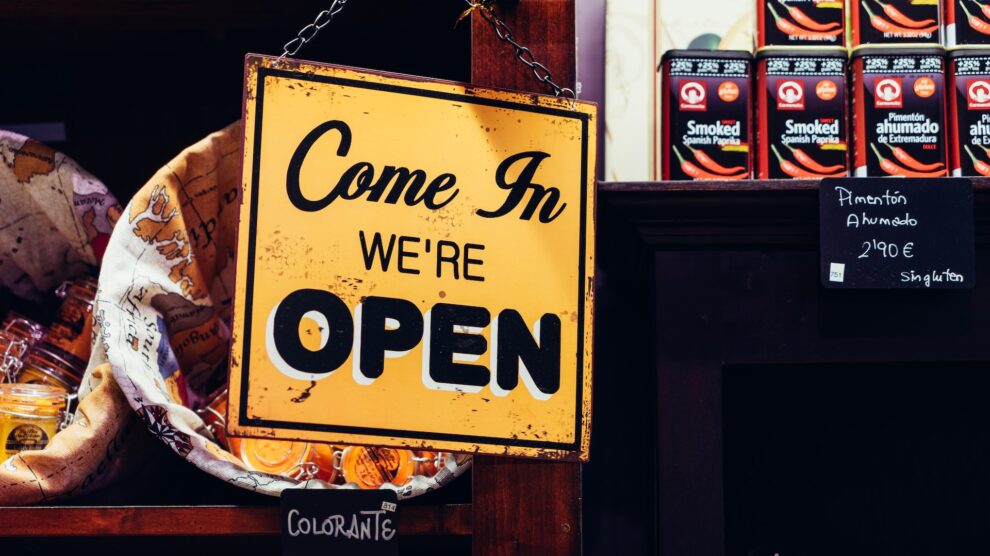Brands that want to succeed in today’s marketplace need to do more than attract customers. Success depends on keeping your customers. It requires converting shoppers into supporters.
To do that, brands need to go beyond providing quality products and services at competitive prices. The rise of e-commerce means shoppers will always be able to find a better deal. To inspire customer loyalty and turn buyers into fans, brands must shift their focus from the deal to the feel. They must connect on an emotional level. That is where brand experience enters the equation.
What Is a Brand Experience?
If you simply look at its list of products, you might think Apple was an electronics brand. They sell desktops, laptops, smartwatches, and phones. To some degree, they are no different from IBM, Samsung, or Sony.
Everyone knows, however, that electronics is not Apple’s brand. It is a lifestyle company. It delivers innovation and style. Apple customers are not looking for deals on electronics. Rather, they are extremely loyal fans who stand in line for hours to be the first to have a new Apple product, the same way that Beyonce fans wait in virtual lines for concert tickets.
Apple is consistently a top global performer because it provides its customers with a powerful experience that connects on an emotional level. Apple, like many other successful brands, has capitalized on the power of brand experience.
Brand experience is about the lasting connection a consumer forms with a company. Companies that leverage brand experience go beyond telling how their products perform to showing how they transform. VRBO goes beyond providing a great vacation rental; it provides a life-changing vacation experience. Apple goes beyond connecting you to the internet; it connects you to a seamless, dynamic, magical new lifestyle.
Building a great brand experience is about building a positive emotional connection that goes well beyond the point of purchase. Customers who have a positive brand experience are eager to use the brand’s products. They enjoy them while they are using them, are thankful afterward, and are quick to tell others about them.
Why Does Brand Experience Matter?
The value of managing the brand experience is immense, primarily because it helps differentiate a brand from its competitors. E-commerce has made the local marketplace a global marketplace, resulting in a dramatic increase in brand competition. A positive brand experience is a powerful tool for making your brand stand out and boosting customer loyalty.
Apple provides a great illustration of how brand experience sets a brand apart and drives its sales. In 2022, 8 of the top 10 best-selling phones were Apple iPhones. Shoppers have dozens of choices when it comes to cell phones. They choose Apple in large part because of brand experiences.
Managing the brand experience also has the potential to make companies more profitable. Customers are willing to pay more for a brand that consistently delivers a positive experience. The value added by the experience creates a perception that the brand is a premium product or service that can justify a higher price tag.
A positive brand experience also inspires brand loyalty. This not only leads to repeat customers, but also inspires customers to recommend the brand to others. Providing a positive brand experience is critical for driving word-of-mouth promotion.
Finally, brands that provide a positive experience can also experience higher employee satisfaction and productivity. Engaging with loyal fans is much more motivating than engaging with indifferent or frustrated customers. As employees see their company’s brand thriving, their sense of pride and ownership in the organization they work for increases.
How Do You Create a Memorable Brand Experience?
Creating a memorable brand experience involves managing the various touch points that allow a customer to connect with your brand. At each point — from social media ads to customer service calls and everything in between — companies must focus on delivering a positive perception of the brand. Both how a brand communicates and what it communicates at every point in the customer journey play a role in creating a brand experience.
As companies seek to shape their brand experience, they can gain valuable insights from connecting with customers. Listening to and observing existing customers and target customers is a great way to determine how to add value to their journey. The best brand experience will address the target customer’s needs, preferences, and pain points.
The more data points a company can consider, the better it will understand its customers’ needs. Determining what content is resonating with customers, as well as what content they are creating, can help develop the experience. Pay attention to the conversations they are having on social media. Watch for consistent messages in reviews or customer service calls. All of these will help you understand your customers’ needs and desires.
Building a community around the brand experience is another way to inspire brand loyalty, create a tribe of brand advocates, and foster long-term relationships with customers. The best tools for building a community depend on your target audience and the nature of your business. Traditional social media platforms are a must. However, there are other marketing channels like SMS texting, newsletters, Discord, and Reddit that can be more effective in building a tight-knit community of like-minded individuals. As you launch into community building, metrics like engagement rates, reach, and sentiment analysis can help you optimize your strategy.
How Can You Leverage a Brand Event?
Experiential brand events, which bring customers together with brand representatives for a memorable experience, are a powerful way to create a meaningful connection and cultivate the brand experience. These can include product launches, conferences, pop-up shops, festivals, networking mixers, or any other event that engages customers with an authentic virtual or in-person event.
Brand experience events allow companies to increase brand awareness on a number of levels. They promote the product or services that the brand offers in an engaging and interactive way that leads to better product awareness and customer retention. They also provide a forum for communicating the brand’s mission and values in a way that will leave a lasting impression. As attendees connect with the brand’s team members, they can make a personal connection that can add more emotion to the brand experience.
The digital connections that drive today’s commerce are convenient, but rarely satisfying. By building a strong brand experience, companies can give their customers the opportunity to connect with products and services in an emotional way. The brand experience opens the door for customers to have a lasting relationship with a company they are proud to support and promote.





